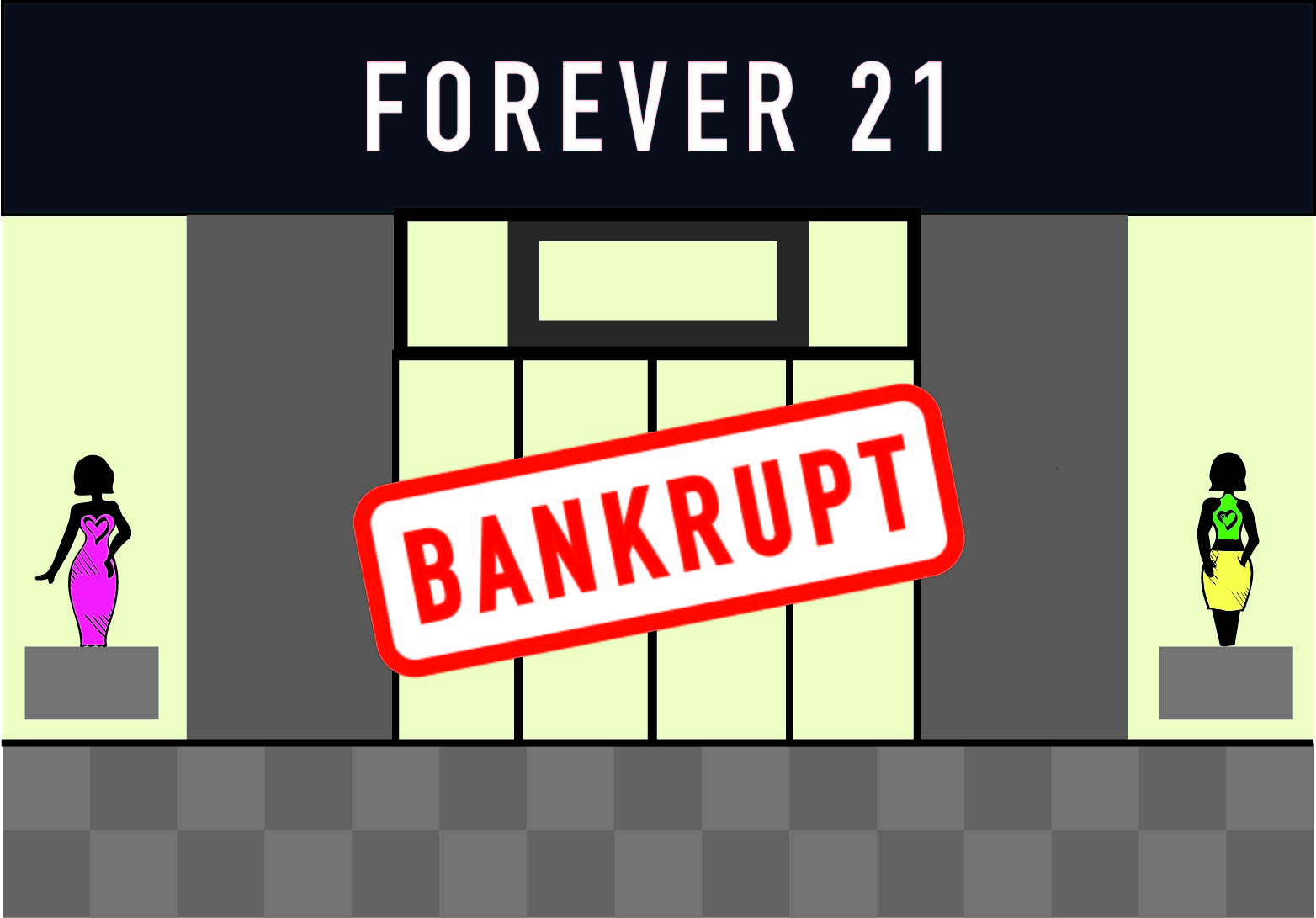A case for the shift to thrift shopping
Prominent fast fashion retailer Forever 21 stated that it would file for bankruptcy on Sept. 29.
The company will “cease operations in 40 countries, including Canada and Japan, as part of a Chapter 11 filing. It will close up to 178 stores in the United States and up to 350 overall …. it would continue to operate its website and hundreds of stores in the United States, where it is a major tenant for mall owners, as well as stores in Mexico and Latin America.”
This announcement puts Forever 21 with other major retailers such as Sears, Claire’s and Payless in the “bankruptcy club,” which many have speculated shows a shift in consumer tastes and purchasing habits.
What I have observed to be a major cause for the decline in popularity towards fast fashion retailers are the unethical means these retailers use to produce their clothing.
The exploitation of cheap labor for increased output and higher profit margins has proved itself to be a highly unethical and unsustainable business model that has caused detriment to thousands of workers and to the environment.
A popular alternative to fast fashion and a rising trend among younger people is thrift shopping. The youth are increasingly spending their money on clothes from places like Goodwill, Clothes Mentor or The Salvation Army.
I frequently donate my old or unworn clothes to the Goodwill in my area and then spend a decent amount of time shopping around afterwards for jeans, t-shirts and any sweatshirt that looks comfortable enough to wear to my 9 a.m. class.
Thrifting is just one great way to live a bit more sustainably, and yet I saw a tweet recently that bashes the practice and, quite honestly, it struck a nerve for me: “Unpopular opinion: If you can afford to buy new clothes every month you shouldn’t be going to thrift stores when there are people who genuinely need those clothes you buy for aesthetic.”
This Twitter user is correct on one thing: her opinion is undoubtedly unpopular.
First, purchasing clothes every month seems excessively unreasonable. Not only does it feed into capitalist greed, but it encourages consumerist practices that contribute to the increasing amounts of clothing waste. Whether or not you shop at a thrift store or H&M, you probably don’t need to replace your wardrobe monthly (see: “Minimalism” on Netflix).

Second, shopping at places like Goodwill is both a smart move for those looking to save a penny where they can, and it encourages ethical purchasing practices by reusing old clothes rather than throwing them away.
Moreover, considering Goodwill runs on donations, there is a continuous supply of clothes coming into the store. If someone is not in immediate financial trouble and is just looking for places in their life to save some money, their purchase of a t-shirt or two will not take away from those in dire need.
Resale stores like Clothes Mentor are just as beneficial for those looking to budget and reduce their levels of individual waste: the store purchases lightly worn or unworn clothes from people looking to get rid of some garments, and then resells those clothing items for a significantly cheaper price.
Fast fashion contributes an immense amount to textile overproduction in the world, and thrift stores give people a place to donate clothes to those who need it and want it for both economic and environmental reasons.
They provide a place for people to shop to both reduce their individual waste to support the environment, and budget in a sector of individual life that benefits the greater good.
In the spirit of full disclosure, I personally shop at Goodwill and Clothes Mentor far more frequently than I do at places like Forever 21 and H&M. Yes, I still have items in my closet that come from these fast fashion retailers, but I have been consciously working to purchase less from retailers with a disreputable environmental track record.
Being in college leaves me with a small amount of money to use for “treat yourself” clothing items, like a comfy brand new $50 sweater. So, I like to go thrift shopping. It’s cheaper than most brand-name, unethical retail stores, it’s better for the environment and it’s fun to do with friends on the weekend.
In light of Forever 21 filing for bankruptcy, I encourage you to think about how your wardrobe affects the environment. Thrift stores are just as cheap as fast-fashion retailers, but they provide an eco-friendly alternative.
Instead of hating on those looking to budget and reduce their carbon footprint, maybe focus that energy on criticizing policy makers and industrial juggernauts who are the real root cause of environmental degradation.







































